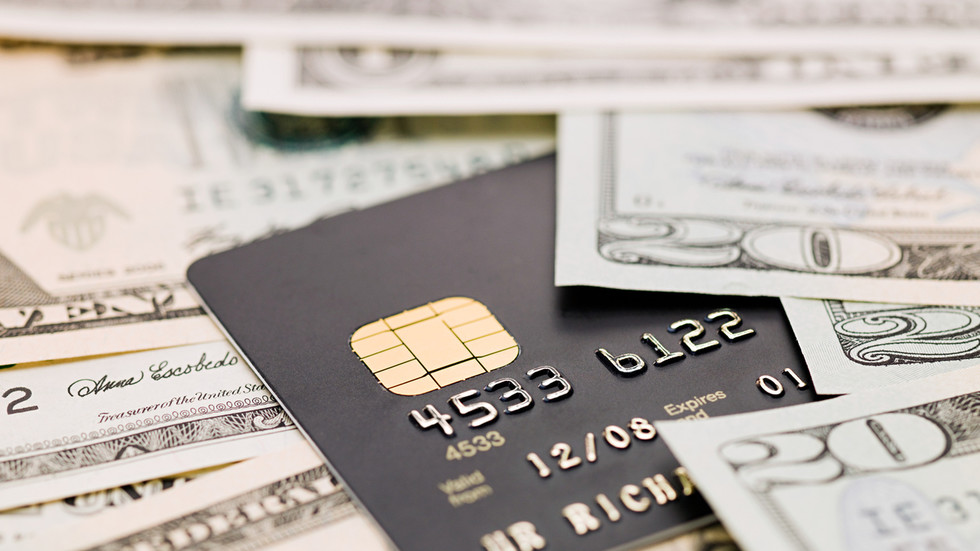
Another interest rate hike from the US Federal Reserve this week would push borrowing costs even higher

© Image Source
Credit card debt in the US grew in the first quarter of this year at its fastest pace in two decades, a recent report has suggested.
In the first quarter of this year, total credit card balances rose by more than 17% from a year ago, marking the largest annual jump in at least 20 years, independent investment research and online financial media company Hedgeye has reported, citing data from the US Federal Reserve.
The cost of revolving credit – a type of credit that does not have a fixed number of payments, in contrast to instalment loans – continued to notch higher to multi-decade highs, the Hedgeye report added. As of last week, the average interest rate on new credit cards stood at 20.82%, compared to just over 12% a decade ago, according to Fed data.
Americans now hold a record amount of credit card debt – nearly $988 billion, according to Fed data released in June.
Financial experts believe the debt keeps piling up in part because high inflation has been forcing households to lean more heavily on their credit cards to cover monthly expenses.
READ MORE: US debt becoming unsustainable – report
The consumer price index hit a 40-year high of 9.1% in June 2022 on the back of a surge in energy and food prices. Inflation has cooled since then, having dropped to 5-6% in the first quarter of this year and to 3% in June.
The drop in inflation has come after the Fed has hiked rates ten times in just over a year, bringing the federal funds rate to the current range of between 5.00-5.25%, up from 1.75% a year ago. The Fed is widely expected to raise rates again this week, despite the slowing inflation.
For more stories on economy & finance visit RT’s business section




